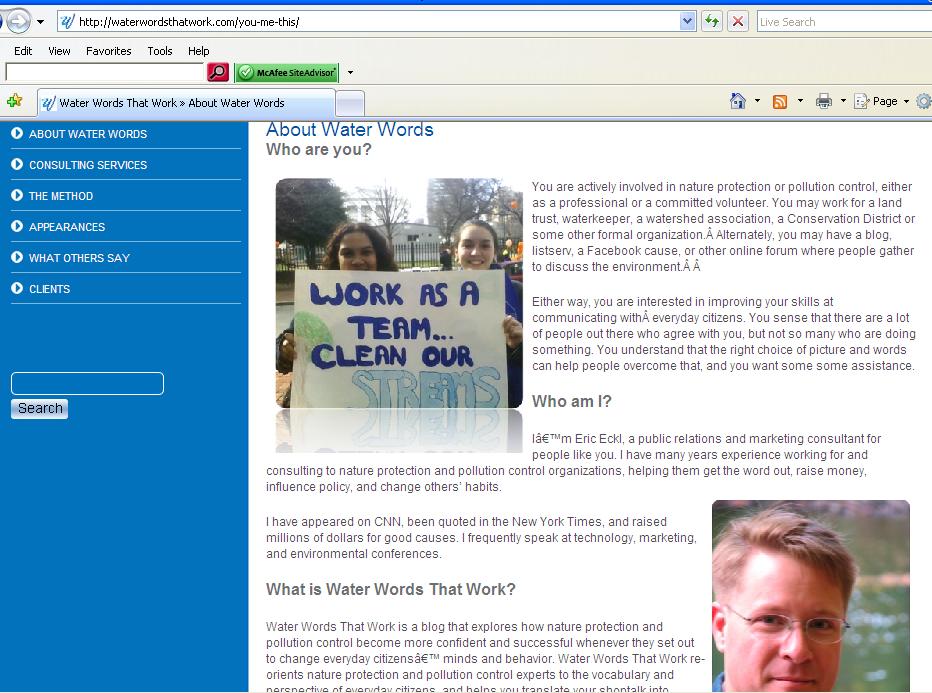Let’s say you have volunteered for a positive cause because you are a firm believer that the well-being and safety of our ourselves, our families, our communities, and our world depends on the well-being of every other human being on the planet because, well, we’re all in this together. Maybe you have even donated money to a nonprofit organization that tries to make the world a better place. At times, you might feel like your positive contribution to society is really making a dent towards solving the problem. You might even be an activist when the need calls for it and go join a protest or sign a petition. Yet at the same time you might feel like your message is not getting across people or that it is not being communicated in the local newspaper or on the local TV newscast as it should be. Powerful moneyed interests that might have as their only interest the maximization of profit without any regard to your community’s health in mind have whole PR/Marketing Relations teams working for them. Indeed, you might feel like your side is facing a gargantuan foe with unlimited resources while yours struggles just to survive. For this reason, it is always encouraging to run across PR/Marketing Relations people that choose to lend your side a hand.Â
I recently discovered the site http://waterwordsthatwork.com that focuses on helping environmental activists win the message wars.  The person that manages the site, Eric Eckl, is a PR/Marketing Relations specialist whose focus is to help activists that fight water pollution become more effective at communicating their pro-environment message and thus become more successful at racking up wins for the good guys. Here’s a still shot of the site:

"Water Words That Work" is a blog that explores how nature protection and pollution control become more confident and successful whenever they set out to change everyday citizens' minds and behavior.
Mr. Eckl has a section titled “The Method” that is just filled with invaluable information on what communicating techniques to use. The Method lists four steps: 1) begin with a focus on behavior, 2) use photos/imagery that have familial wide appeal, 3) swap the shop talk (jargon) for words that resonate more with the public, and 4) Mr. Eckl even gives you a list of terms that you can use in your narrative to fit the occasion.
He gives very clear-cut advice: always offer suggestions on personal behavior (the action item). In the case of water pollution, a suggestion might be to use a reusable non-plastic container instead of buying water in a plastic bottle that will only be used once and end up floating in the ocean as trash; join a beach cleanup; or maybe provide the public with instructions on who to contact to put pressure on a local official to do something about the water pollution. As far as the use of imagery, Mr. Eckl recommends to use photos of seemingly average people (preferrably families) in action, doing something to combat water pollution instead of just using pictures of say, trash floating in the river with no people around. The point of this is to get the message across that the action item is relatable to the average person and that, yes, even you can do something about it. Perhaps the most powerful advice that Mr. Eckl gives is that one should choose the words one uses carefully. For example, he recommends to avoid the use of words like “water conservation†and instead use “waste prevention†or â€efficiency measures†because “The public does not associate this term [‘water conservation’] with long term, institutional scale efforts. It associates it with short showers, brown lawns, and other personal sacrifices that are acceptable as a temporary emergency measure but not a real solution to a long term problem.â€Â Finally, as mentioned earlier, he even has a set of terminology to use for each appropriate occasion, like when you want to introduce your work, explain the importance of an item, encourage people to act, or ask for someone’s agreement.  For the complete list of terminology, be sure to visit: http://waterwordsthatwork.com/the-method/ it is a jewel of instructions in the sea of PR/Marketing techniques!   Â